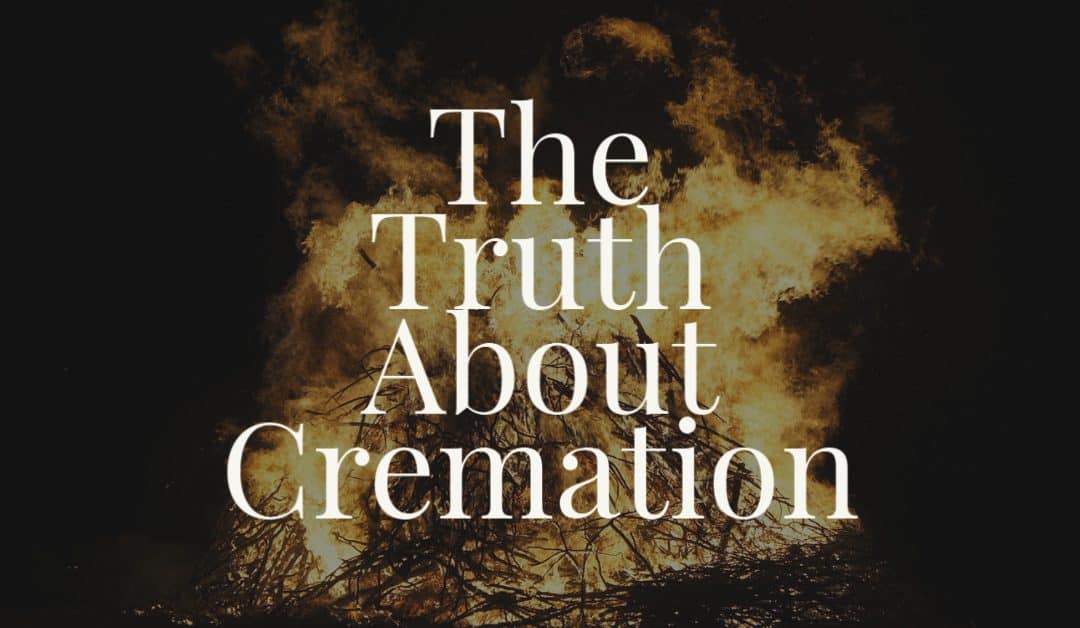Preparing for death involves determining how the funeral home will treat your remains. There are several options available in this day and age, but one tops the list in popularity.
According to CNN, “Cremation became the top choice in 2015 and has been climbing in popularity ever since. According to statistics from the National Funeral Directors Association, or NFDA, more than half of all Americans who die this year will be cremated. In 20 years, the association predicts, nearly 80% of us will opt to have our bodies turned into ash.” (3)
Because of its growing popularity, many funeral homes now offer cremation onsite and even offer a sitting area so that family and loved ones can participate in the process if they desire. There is also a growing level of flexibility in service arrangements including many ways to handle the process of memorializing your loved one.
Let’s look at what cremation is, how it works, the pros and cons, and why the majority of people are choosing cremation for their remains.
What is Cremation Exactly?
According to Funeral Wise, “Cremation reduces the body to its basic elements through a process that exposes it to open flames, intense heat, and evaporation. This takes place in a specially designed furnace called a cremation chamber or retort.”
Some funeral homes send remains off to a dedicated crematory separate from the funeral home. Others make a point of cremating in house and using their own certified employees to walk families through the process. An in-house cremation at a funeral home can give you a sense of inclusion in the process. Being there can be part of saying goodbye to your loved one’s bodily presence on earth.
After the funeral home has gathered the ashes left from the process of cremation, you can choose how to handle their disposition. Some loved ones choose to make jewelry or other sentimental items that hold ashes. Some pick out a simple urn while others have the ashes interred. One common way to dispose of the ashes is by scattering them wherever the deceased wished. This could be on a beach, off the top of a mountain, or literally shot into outer space with a rocket.
Memorialization Considerations
According to the National Funeral Directors Association, “Some families choose to have a viewing or funeral service before the cremation. Others choose a memorial service at the time of cremation or afterward with the urn present, or even a committal service at the final disposition of cremated remains. Often, funeral or memorial services can be held in a place of worship, a funeral home, a crematory chapel or even at a place of special significance to your loved one.”
Consider these questions when making a plan:
- Will the cremated remains be placed in a grave or tomb or will you select an urn?
- Will you have a service or gathering of family and friends prior to, during, or after cremation?
- Will there be a public or private viewing before the cremation?
Mull over your options to memorialize your loved one. Think about what is best for family members and friends both near and far. Consider the wishes of loved ones who may worry about in-person services. With cremation, almost any order or type of service is possible.
Cost Effectiveness
A very basic funeral with a visitation, simple casket, grave site and marker can easily run upwards of $8,000-$10,000 in NC. While some believe strongly that the body should not be reduced to ashes, many are perfectly fine with cremation or even prefer it. Many are simply strapped for cash and cannot afford to have a burial place with casket, grave liner, vault, and burial services. For these reasons, cremation can be an attractive option at only around $2400 for the actual cremation.
Other expenses may include:
- Professional Services
- Transfer of Deceased to the funeral home’s care
- On-Site Cremation
- Basic Urn
- Cremation Certificate
- Private Goodbye Viewing
- All Necessary Paperwork
- Weekday Memorial Service in a Chapel
- LIVE Streaming Memorial Service
Many funeral homes now include an entire package around their cremation services that can include all of the extras in one low all-inclusive price without any hidden fees.
Religious Considerations
Cremation is a generally accepted practice for the disposition of remains in the United States. However, different faiths have differing ideas about what is acceptable. Some religious communities are not agreeable to their adherents choosing cremation.
Religions Who Do Not Approve Cremation:
- Islamic
- Orthodox Jewish
- Eastern Orthodox
- Some fundamentalist Christian faiths
- Roman Catholic Church prefers burial. They allow cremation but do not sanction the scattering of remains. They also prefer the presence of the body during the liturgy before the cremation. (2) According to Legacy.com, “The Catholic Church forbids ashes to be scattered, kept at home, or made into cremation jewelry or other keepsakes. Interment of ashes is the only acceptable option under current Catholic guidelines.” (3)
Cremation Legislation
It is a fact that cremation reduces the size of a body, its ability to transfer disease or chemicals, and eliminates the need for interment space. At one point in 2020, Nevada decided that individuals with COVID-19 could only be cremated. They later reversed their decision, but their decision may be indicative of future public policy decisions. We really don’t know what the future holds as far as what states may decide concerning the public health benefits of cremation.
Find Help
If you are faced with the planning for the death of a loved one, contact a local funeral home to consider your options. The trained professionals at a funeral home can talk through your options with you and help you make decisions that are best for your budget, your loved ones, and your belief system while honoring the wishes of the deceased.


